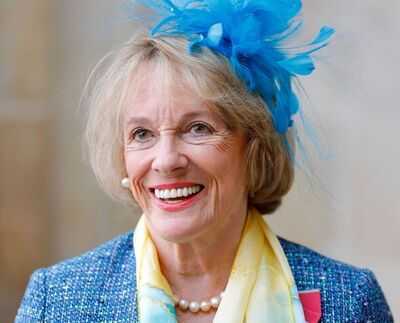
Listen to this article in summarized format
Loading...
×Weapon of mass destruction
Donald Trump's proclamation in September to impose a $1 lakh entry fee on each new non-immigrant high-skilled worker (H-1B visa holder) was pitched to protect American jobs. But the data tell a different story. Far from safeguarding the US labour market, the fee threatens to increase costs for American employers, weaken US competitiveness in technology and healthcare, and harm citizens - exactly the opposite of its stated aim.
Has Trump realised this, and softened his stance? In an interview with Fox News earlier this month, he said: 'You also do have to bring in talent.' When the host said the US has plenty of talented people, Trump replied, 'No, you don't.... You don't have certain talents, and people have to learn.' Trump's MAGA-America First base is not happy with this turnaround.
But data tell their own story. According to a November 2025 National Foundation for American Policy (NFAP) report, 'H-1B Petitions and Denial Rates in FY2025', companies such as Amazon, Meta Platforms, Microsoft and Google were top H-1B sponsors in FY25 (4,644; 1,555; 1,394; and 1,050 approvals respectively). These are companies that also invest heavily in AI and other advanced fields.
These are not labour hires, as has been claimed by policymakers. NFAP's report notes a median salary (in FY24) for H-1B professionals in computer-related occupations of around $1.25 lakh, with an average of $1.36 lakh. Further, 63% of approved H-1B beneficiaries earned a master's degree or higher, indicating that H-1B visa holders are highly skilled professionals sought in the US and other countries. By slapping a six-figure fee on each of these hires, the US essentially burdens its most innovation-driven firms with a 'talent tax'.
Interestingly, in FY25, only three Indian-based companies - TCS, LTIMindtree and HCL America - appeared among the top 25 employers with approved H-1B petitions for initial employment (new hires). In FY25, the top seven Indian-based companies had only 4,573 H-1B petitions approved for initial employment, a drop of 70% from FY15 and 37% fewer than in FY24.
The Trump regime's rationale rests on protecting American workers because of rising unemployment in tech. But NFAP finds the opposite: unemployment in computer and mathematical occupations declined from 3.4% to 3.0% between August 2024 and August 2025. In architecture and engineering, it fell from 1.7% to 1.4%.
Large US firms need to rely on international talent, and NFAP analysis found that 70% of full-time graduate students at US universities in selected AI-related fields are international students. Retaining them in the US after graduation is essential to US leadership in AI, according to a congressional commission. At a time when the US is racing China in AI, cloud and robotics, raising the hurdle for these critical hires makes no strategic sense.
One of the most under-emphasised impacts of the entry fee is on the healthcare sector, where immigrant professionals play a central role. NFAP, in another November 2025 report, 'The Contributions of Foreign-Born Workers to US Health Care', points out that nearly 19% of healthcare workers in the US are foreign born. That includes physicians, nurses, pharmacists and home health aides.
One of the first lawsuits against the $1 lakh fee came from Global Nurse Force, a California-based staffing company that has placed more than 10,000 nurses at over 175 hospitals worldwide. It submitted in court filings that the six-figure fee will immediately halt international nurse recruitment, force it to shut down its US operations, and worsen hospital staffing shortages - particularly harming ICUs, emergency rooms and surgical units, with outsized impacts on rural and inner-city communities.
A $1 lakh fee means hospitals, nursing homes, homecare agencies and medical research firms will face sharply higher costs for every foreign-trained specialist or nurse they'd otherwise sponsor. That cost - either absorbed or passed on - ultimately raises premiums, lowers staffing levels, and undermines access to care for ordinary Americans.
While well-known companies garner the most attention, contrary to popular perception, this isn't just a fee on mega giants. In FY25, 28,277 US employers petitioned for H-1Bs; 61% hired only one person. Over half of all new applications went to employers with 15 or fewer approvals. These are universities, hospitals, regional tech firms and manufacturing plants - not just big names.
The NFAP report highlights a 2020 study, 'How Do Restrictions on High-Skilled Immigration Affect Offshoring? Evidence from the H-1B Program', showing that when US firms are denied H-1Bs, they often move jobs abroad. 'For most global multinational companies, this is at almost a 1:1 rate. The results demonstrate an important unintended consequence of immigration restrictions: the movement of jobs and talent abroad, with major implications for US competitiveness,' it states.
NFAP reminds us that the annual H-1B cap of 85,000 represents only 0.05% of the US labour force, a rate that hasn't kept pace with the rise of a trillion-dollar digital economy. The $1 lakh H-1B fee isn't a protective device for American workers. It's a regulatory sledgehammer that risks hurting American citizens. Trump's right to have second thoughts about it.
Has Trump realised this, and softened his stance? In an interview with Fox News earlier this month, he said: 'You also do have to bring in talent.' When the host said the US has plenty of talented people, Trump replied, 'No, you don't.... You don't have certain talents, and people have to learn.' Trump's MAGA-America First base is not happy with this turnaround.
But data tell their own story. According to a November 2025 National Foundation for American Policy (NFAP) report, 'H-1B Petitions and Denial Rates in FY2025', companies such as Amazon, Meta Platforms, Microsoft and Google were top H-1B sponsors in FY25 (4,644; 1,555; 1,394; and 1,050 approvals respectively). These are companies that also invest heavily in AI and other advanced fields.
These are not labour hires, as has been claimed by policymakers. NFAP's report notes a median salary (in FY24) for H-1B professionals in computer-related occupations of around $1.25 lakh, with an average of $1.36 lakh. Further, 63% of approved H-1B beneficiaries earned a master's degree or higher, indicating that H-1B visa holders are highly skilled professionals sought in the US and other countries. By slapping a six-figure fee on each of these hires, the US essentially burdens its most innovation-driven firms with a 'talent tax'.
Interestingly, in FY25, only three Indian-based companies - TCS, LTIMindtree and HCL America - appeared among the top 25 employers with approved H-1B petitions for initial employment (new hires). In FY25, the top seven Indian-based companies had only 4,573 H-1B petitions approved for initial employment, a drop of 70% from FY15 and 37% fewer than in FY24.
The Trump regime's rationale rests on protecting American workers because of rising unemployment in tech. But NFAP finds the opposite: unemployment in computer and mathematical occupations declined from 3.4% to 3.0% between August 2024 and August 2025. In architecture and engineering, it fell from 1.7% to 1.4%.
Large US firms need to rely on international talent, and NFAP analysis found that 70% of full-time graduate students at US universities in selected AI-related fields are international students. Retaining them in the US after graduation is essential to US leadership in AI, according to a congressional commission. At a time when the US is racing China in AI, cloud and robotics, raising the hurdle for these critical hires makes no strategic sense.
One of the most under-emphasised impacts of the entry fee is on the healthcare sector, where immigrant professionals play a central role. NFAP, in another November 2025 report, 'The Contributions of Foreign-Born Workers to US Health Care', points out that nearly 19% of healthcare workers in the US are foreign born. That includes physicians, nurses, pharmacists and home health aides.
One of the first lawsuits against the $1 lakh fee came from Global Nurse Force, a California-based staffing company that has placed more than 10,000 nurses at over 175 hospitals worldwide. It submitted in court filings that the six-figure fee will immediately halt international nurse recruitment, force it to shut down its US operations, and worsen hospital staffing shortages - particularly harming ICUs, emergency rooms and surgical units, with outsized impacts on rural and inner-city communities.
A $1 lakh fee means hospitals, nursing homes, homecare agencies and medical research firms will face sharply higher costs for every foreign-trained specialist or nurse they'd otherwise sponsor. That cost - either absorbed or passed on - ultimately raises premiums, lowers staffing levels, and undermines access to care for ordinary Americans.
While well-known companies garner the most attention, contrary to popular perception, this isn't just a fee on mega giants. In FY25, 28,277 US employers petitioned for H-1Bs; 61% hired only one person. Over half of all new applications went to employers with 15 or fewer approvals. These are universities, hospitals, regional tech firms and manufacturing plants - not just big names.
The NFAP report highlights a 2020 study, 'How Do Restrictions on High-Skilled Immigration Affect Offshoring? Evidence from the H-1B Program', showing that when US firms are denied H-1Bs, they often move jobs abroad. 'For most global multinational companies, this is at almost a 1:1 rate. The results demonstrate an important unintended consequence of immigration restrictions: the movement of jobs and talent abroad, with major implications for US competitiveness,' it states.
NFAP reminds us that the annual H-1B cap of 85,000 represents only 0.05% of the US labour force, a rate that hasn't kept pace with the rise of a trillion-dollar digital economy. The $1 lakh H-1B fee isn't a protective device for American workers. It's a regulatory sledgehammer that risks hurting American citizens. Trump's right to have second thoughts about it.
(Disclaimer: The opinions expressed in this column are that of the writer. The facts and opinions expressed here do not reflect the views of www.economictimes.com.)





 Subscription
Subscription






Lubna Kably
Lubna Kably is a senior editor, who focuses on various policies and legislation. In particular, she writes extensively on immigration and tax policies. The Indian diaspora is the largest in the world; through her articles she demystifies the immigration-policy related developments in select countries for outbound students, job aspirants and employees. She also analyses the impact of Income-tax and GST related developments for individuals and business entities.